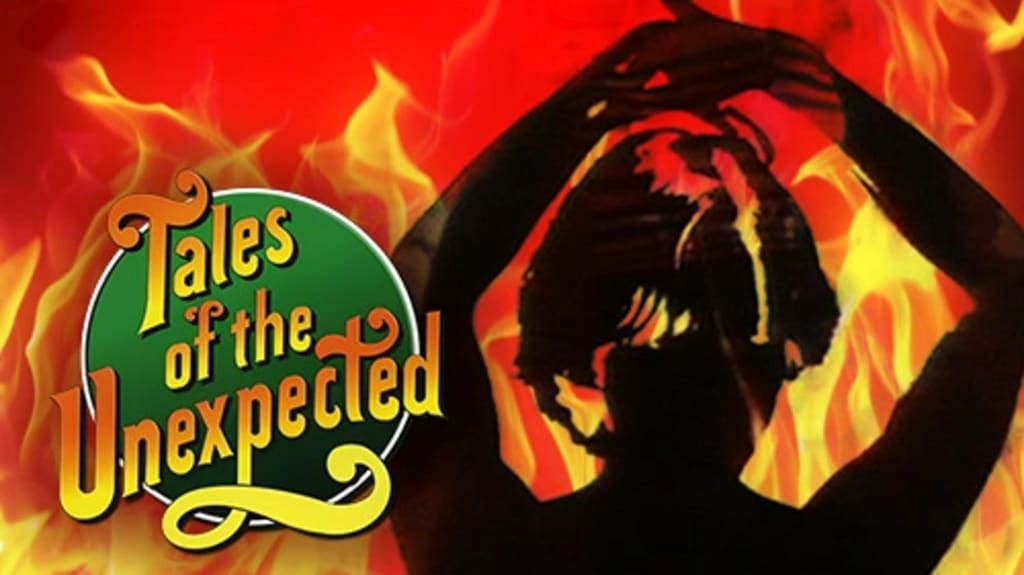
Tilda’s heart was pounding already and the auction hadn’t even started. People were still just taking their seats in the vast Victorian auction hall, shuffling politely past the few already seated in their rows, muttering embarrassed ‘sorrys’ as they squeezed towards their destination, setting off mini Mexican waves as people patiently rose, breathed in, then sat again.
She had been sitting stiffly in her place since the doors opened twenty minutes ago. Her auction catalogue was tatty already, folded open sharply at lot number 9. She tried to convince herself that there was really nothing to be worried about; the little black book had been authenticated by two independent experts and the closely guarded reserve price had been set at a generous £15,000.
The auctioneer had confidently assured her that, due to the mild news frenzy surrounding her remarkable find, they could expect a substantial final price. There was even rumour that a well known collector of Roald Dahl memorabilia and owner of a bottomless wallet was going to be bidding via telephone.
Secretly, Tilda hoped it was nothing more than gossip. This was not merely about money. It had to be Ms Freeman. No one else would do; if the TV producer didn’t win the bid then the whole thing would be wasted. Tilda knew that once Pippa Freeman got her talented hands on the five tales, once her visual interpretation of the carefully chosen words in that book started to take shape, they would take on a life of their own. Sealed in time. Eternally embodying the genius within.
She glanced surreptitiously over her shoulder to see if she coud spot the TV legend. The clearest image she’d been able to find online was a grainy photo taken at an awards ceremony. There was no guarantee that Ms Freeman would even turn up to the auction in person, let alone dressed up in glamorous red-carpet attire.
All she could do was pray and wish and hope and try to slow the frantic beating of her heart.
Of course, the money would come in handy; twenty grand would be a nice amount - enough to give her the time-freedom she craved. But if the stories were not made into a TV series as a final tribute to the originator of the famous ‘Tales,’ then what was the point?
Tilda fidgeted, her fingers twitching in a constant cycle of crossing, uncrossing and recrossing them so tightly they hurt because the only other option would to be to cover her face with her hands.
She imagined her late mother doing exactly that as a child in front of the black and white TV on the rare occasions she had been allowed to stay up and watch a scary episode from the original series of Tales of The Unexpected (only the episodes suitable for children, of course.)
Her family considered themselves Mr Dahl’s absolute biggest fans and Tilda herself had been named after the cherished character from one of his most famous children’s classics.
Right now she wished that, like her namesake, she had superhuman powers of telepathy. Grasping hold of the immature fantasy in her mind, she wondered - what would Matilda do?
She took a deep breath. Matilda would be cool. She would be confident, safe in the knowledge that everything was going to be fine. She would have faith. But Matilda was just a kid - nothing but a fictional kid. Tilda was a grown woman who needed to get a grip, pull herself together, grow up.
She swore she could feel the energy of the book seeping into the huge room, its magic reaching out invisible heartstrings like tentacles straight into her core. There was no way she could possibly see it from where she was seated, but that was irrelevant. She knew every crease in its creamy pages, every scratch in the beautiful, soft Moleskine cover and, certainly, she knew every enchanting, meticulously pencilled word.
As soon as it found its way safely into the correct hands and the money found itself safely into Tilda’s bank account, she could get on with her life. She could quit her mundane job and do what she was destined to do for evermore: write stories.
If she could just get through the next half-hour, everything would turn out to be scrumdiddlyumptious.
Yet still, a waking nightmare flitted through her mind. One where members of the Dahl family - perhaps his famous granddaughter - stormed the auction house to put a halt to what they called ‘the whole charade,’ insisting that the writer would never have just given away his precious stories to a mere child.
She took a deep breath. Now the room was pretty full and the auctioneer was taking up his position. Members of the audience fidgeted with their catalogues and bidding paddles, waiting for it to begin. Tilda glazed over, lost in an anxious, sweaty world of her own.
In no time at all, the auctioneer shattered her reverie with his gavel.
“Lot number eight. Sold to the gentleman standing at the back there - paddle number twenty seven, is that correct?” He squinted over his half moon spectacles.
The room errupted into chatter before the next lot went up. How could she possibly have missed lots one through to seven?
Too soon, the hush descended again and Tilda shifted downwards slightly in her seat.
“Lot number nine,” the Auctioneer announced, “a lost notebook formerly belonging to the late writer Roald Dahl, containing five previously unpublished stories from the Tales of The Unexpected Series made popular by the serialisation for TV in the nineteen seventies and authenticted by the chief curator of the Roald Dahl Museum.”
Tilda’s mouth was dry. It was as if all the moisture had migrated into her palms.
“Hold your nerve,” Nan would have said in her broad, Welsh valleys accent, “just hold your nerve, Tilly, my girl.”
“Can we start the bidding at ten thousand pounds? Any takers at ten? That goes to you sir, in the second row. Eleven? I see eleven over in the far right corner, thank you madam.”
As a kid, Tilda hadn’t realised that the ‘story gene’ had originated with her grandmother. A widowed matriarch, Nan was too busy looking after everyone to ‘squander her time telling silly tales’ and so Mum had claimed the title as the family’s story genius.
“Beautiful Lies! Nothing but Beautiful Lies!” That was how Nan had referred to Mum’s talent for weaving words into riveting tales. But even as a child, Tilda could detect the secret pride threaded through her Nan’s voice. It held a reverence that afforded the phrase its own capital letters, even when just spoken. Beautiful Lies.
Tilda had read them with her very own eyes. Her mother’s distinctive calligraphy. Words so precious and delicate they might fly away off the page like inky butterflies into the spring air. Or dissolve into the original nothingness of a time-yellowed empty page.
So at the tender age of just seven years old, Tilda had decided that when she gew up she, too, was going to be really good at telling ‘Beautiful Lies.’
For the umpteenth time, she looked down at the open page of the catalogue that confirmed what the man had just read out.
‘Long Lost Notebook of Roald Dahl’s final, unpublished Tales of the Unexpected.’ She couldn’t even bring herself to look at the photogrph of the notebook above the caption. A part of her so desperately wanted to keep it forever. As if it was, indeed, a part of her.
“Twelve, any increase on twelve thousand?”
A tiny hint of pink warmth threatened to creep into her cheeks. Beautiful Liar.
Everyone knew that Mr Dahl usually wrote his stories on yellow legal pads. But the handwriting had been carefully, meticulously analysed, down to the very specific pencils he always loved to write with. Provenance verified.
Tilda recalled in minute detail the account of her mother’s encounter with the man himself.
It was a trip to London on the train for the first time. Nan was taking Mum to Great Ormond Street Hospital because she had a rare type of childhood brain tumour. It was benign but they had to keep an eye on its size. Half way into the journey, Nan had sent her daughter, then eleven, with a couple of coins to the buffet car to get them something to eat while she kept their seats. On her return, the overexcited child had blurted out her garbled story.
“Fifteen thousand to the telephone bidder.”
First, she had got confused because she’d been expecting an actual buffet - the kind of spread you might get in the village hall at a birthday party.
So, she had walked obliviously through the buffet car, straight into the first class carriage. There, she had met a gentleman who had been very kind, asked if she was lost and on hearing of her quest for buffet food, had offered her a sandwich from his case.
The ensuing conversation revealed the author’s identity (‘The Actual Roald Dahl!’) along with the little girl’s love of creating tales of her own as well being his ‘all-time, number one fan.’
On hearing this, he reached into his briefcase and pulled out a notebook full of his own ‘beautiful lies.’ (Apparently he had loved Mum’s lovely way of describing her fiction.)
And that was Mum’s version of the story behind the Little Black Notebook.
Nan, however, had told it quite differently. In her dismissive version, she insisted that her daughter’s overactive imagination, along with the brain tumour, had made her prone to telling the occasional ‘ugly lie’ and therefore she was not to be taken at her word.
When pressed, years later, by a wide-eyed Tilda, Nan had vehemently claimed the book was just something that Mum had either found or ‘pilfered’ on the train. To her recollection the book had always been empty. By that time, Mum was no longer around to contradict her - that ugly cancer had returned to steal their Beautiful Liar away to heaven and Tilly had grown up without her mother.
“Nineteen thousand pounds to the gentleman in the green jacket, any advance on nineteen?”
Now, Nan was gone too and Tilda had inherited all the usual worthless family treasures, stowed in a locked trunk at the end of her Nan’s bed. Only three things of any value remained - the Little Black Book, the family gift of storytelling and a stroke of luck that Mum’s story checked out - Mr Dahl had indeed been on that train from Wales to London!
“Yes, twenty. Twenty thousand pounds, going once on lot number nine, going twice......” he looked quickly around the room. “Sold to the lady in the aisle there for twenty thousand pounds. Congratulations Madam.”
The gavel went down and the interim chatter swelled instantly.
Tilda was numb, elated, drained. Hands shaking, she turned, craning her neck to glimpse the winner of the bid. It definitely looked like her. She couldn’t be sure and it was out of her control now anyway. She could only hope.
And, of course, there was always the money.
Suddenly, someone was tapping her on the shoulder.
“I’m Pippa Freeman.” The woman held out her hand. “Pleased to meet you.”
Feeling like a ten year old, Tilda blinked and pulled herself together, taking the hand and giving it a firm shake, hoping she didn’t sound too starstruck.
“Congratulations on winning the book. You must be so excited about your project.”
“Thank you. Yes, I am.” The TV producer paused, an enigmatic smile lighting up her intelligent, familiar face. “I must say, you write exquisite stories.”
About the Creator
Ali Todd
I am Ali, a writer, therapist and teacher. I love my dog, my man, my life and my craft.






Comments
There are no comments for this story
Be the first to respond and start the conversation.